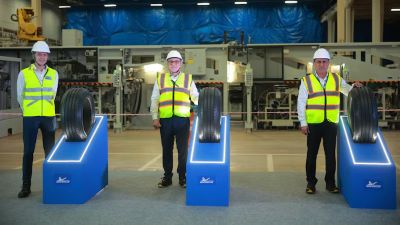
French tyre giant Michelin has rolled out its first locally manufactured passenger car tyre from its Chennai facility, marking a significant shift in manufacturing strategy driven by government policy rather than voluntary corporate decision-making.
The milestone represents the culmination of regulatory pressure that began intensifying when authorities insisted on BIS (Bureau of Indian Standards) marking for all tyres sold domestically.
This requirement effectively forced international manufacturers to establish local production or face market exclusion, creating one of the more successful examples of the Make in India initiative's enforcement mechanisms.
The Chennai plant's first product, the Primacy 5 tyre, emerged from production lines after Michelin invested Rs. 686 crore in the facility expansion, an increase from the initially announced Rs. 564 crore. This brings total investment at the Chennai location to over Rs. 3,400 crore, positioning it as Michelin's flagship manufacturing hub in the region.
BIS marking requirements essentially cornered tyre manufacturers into choosing between market access and import-dependent business models. Companies that previously relied on manufacturing centres in Thailand, Malaysia, or Europe found themselves unable to continue serving the market without domestic production credentials. The regulation created an immediate deadline that transformed theoretical Make in India aspirations into practical business necessities.
This enforcement mechanism succeeded where previous incentives had limited impact. Rather than offering subsidies or tax breaks that companies might ignore, the BIS requirement created a binary choice: manufacture locally or lose market access entirely. The approach demonstrates how regulatory compliance can drive industrial policy more effectively than financial incentives.
The new Chennai production line represents one of the most automated tyre manufacturing facilities in the country, operating with just 200 employees compared to the industry standard of 500 for similar capacity.
Advanced robotics and automated systems handle most production processes, requiring 50,000 hours of specialized training for Indian technicians at Michelin facilities worldwide.
Commercial availability is scheduled for the first half of 2026, with production focusing exclusively on premium segment tyres ranging from 16 to 22 inches. The facility will manufacture globally recognized Michelin ranges including LTX Trail ST, Pilot Sport 4 SUV, Pilot Sport 5, and Primacy 5 models.
The Chennai plant already produces 38 different tyre specifications for commercial vehicles, buses, and defence applications, with all business-to-business tyres featuring RFID technology for tracking and authentication. This existing infrastructure provided the foundation for passenger car tyre production expansion.